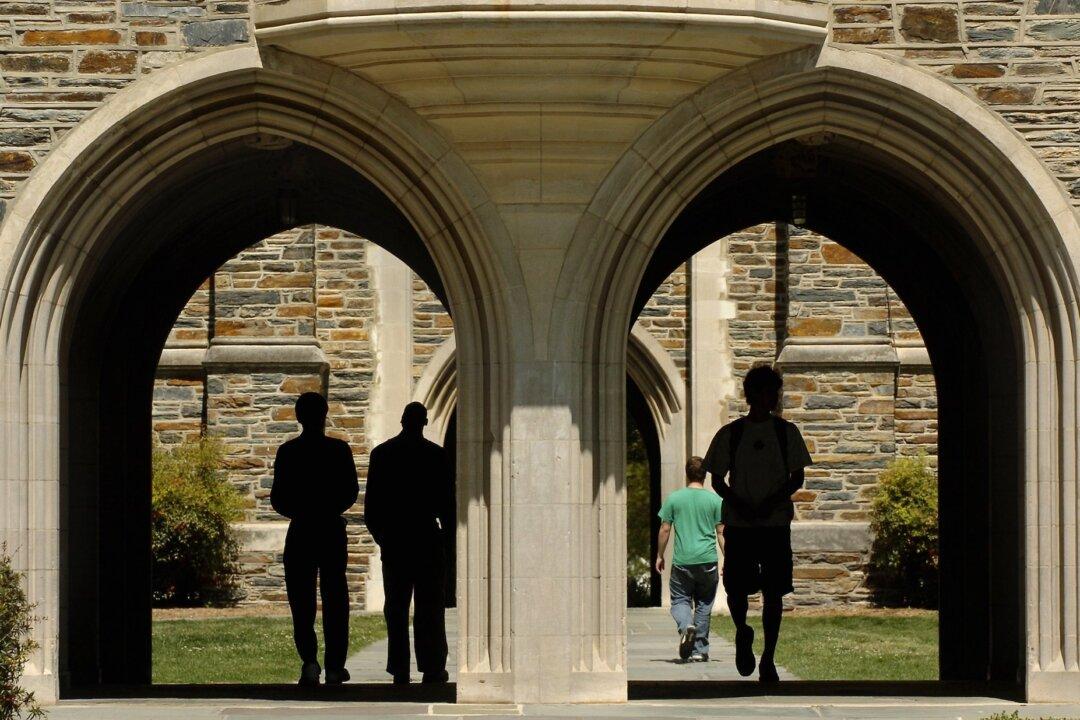Duke University on Monday enacted stricter mask and vaccine policies after a surveillance test returned hundreds of positive results for COVID-19 among its overwhelmingly vaccinated student and staff population.
Duke, which required COVID-19 vaccination for all students coming or returning to its Durham, North Carolina, campus this fall, reported that 304 undergraduate students, 45 graduate students, and 15 employees tested positive for the disease in the last week.





